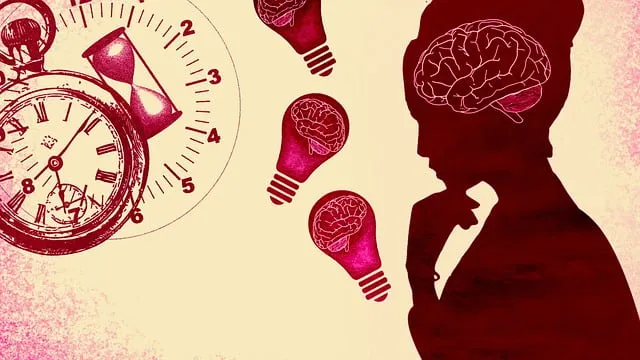The Kaiser Permanente mental health center Boulder is a specialized resource for trauma care, addressing the unique needs of individuals after accidents or natural disasters. They offer tailored therapy, group support, workshops on self-esteem and inner strength, and stress management programs. Using evidence-based tools like Trauma-Focused Cognitive Behavioral Therapy (TF-CBT) and cultural competency training, they ensure accurate diagnoses and sensitive care. Their holistic approach combines therapies with mood management, conflict resolution, and community engagement to promote comprehensive healing. By fostering open dialogue and collaborating with local entities, the center empowers clients to regain control and enhance their mental well-being in Boulder's vibrant community.
“Trauma, an invisible scar left by adverse experiences, demands specialized support systems for healing. This article explores comprehensive trauma care through the lens of the Kaiser Permanente Mental Health Center Boulder, a pioneering institution in this field. We delve into the multifaceted approach to understanding and addressing trauma, including assessment tools and therapeutic interventions. Additionally, it highlights community engagement strategies, emphasizing the expansion of trauma support beyond clinical walls, showcasing the center’s impact on enhancing mental health services for all.”
- Understanding Trauma and Its Impact: A Foundation for Support Services
- The Role of Kaiser Permanente Mental Health Center Boulder in Trauma Care
- Identifying and Assessing Trauma: Tools and Techniques for Healthcare Professionals
- Effective Trauma Support Services: Therapeutic Approaches and Interventions
- Community Engagement and Resources: Expanding the Reach of Trauma Support
Understanding Trauma and Its Impact: A Foundation for Support Services

Trauma is a profound and complex experience that can profoundly impact an individual’s mental and emotional well-being. It stems from diverse sources, including severe accidents, violence, natural disasters, or prolonged exposure to distressing situations. Recognizing and understanding trauma is paramount in establishing effective support services. At the Kaiser Permanente mental health center Boulder, experts emphasize that trauma affects not just the mind but also shapes an individual’s ability to navigate daily life, often presenting as anxiety, depression, or even physical symptoms.
By fostering a safe and supportive environment, these centers aim to help individuals process their traumatic experiences. This involves various strategies such as therapy sessions tailored to address specific trauma types, group support where shared experiences create a sense of community, and workshops focused on self-esteem improvement and inner strength development. The Kaiser Permanente mental health center Boulder also offers stress management programs, equipping individuals with tools to cope and potentially preventing future trauma from escalating. Organizations like these play a pivotal role in empowering survivors, helping them rebuild their lives and regain control, ultimately enhancing their overall resilience.
The Role of Kaiser Permanente Mental Health Center Boulder in Trauma Care

The Kaiser Permanente Mental Health Center Boulder plays a pivotal role in trauma care within the community. As a leading healthcare provider, the center offers specialized services tailored to address the complex needs of individuals who have experienced traumatic events. Their comprehensive approach includes therapy programs focused on Inner Strength Development, aiming to equip individuals with the tools to cope and rebuild after trauma. The center’s experts are dedicated to fostering an environment that promotes healing, encouraging clients to navigate their emotional challenges with resilience and Emotional Intelligence.
Beyond direct therapy, Kaiser Permanente Boulder facilitates support groups and educational workshops, recognizing the importance of community in trauma recovery. By engaging in these initiatives, survivors can connect with peers who understand their journeys, fostering a sense of belonging and empowerment. This holistic approach to trauma care sets Kaiser Permanente Mental Health Center Boulder apart, ensuring individuals have access to essential resources for healing and long-term mental well-being.
Identifying and Assessing Trauma: Tools and Techniques for Healthcare Professionals

Identifying and assessing trauma is a crucial step in providing effective support for individuals who have experienced adverse events. Healthcare professionals at the Kaiser Permanente mental health center Boulder utilize a range of tools and techniques to ensure accurate diagnosis and tailored treatment plans. These include evidence-based assessments, such as the Trauma-Focused Cognitive Behavioral Therapy (TF-CBT), which helps patients process traumatic memories and develop healthy coping strategies.
Cultural competency training for healthcare providers plays a significant role in this process. By understanding the impact of cultural background, social determinants of health, and individual experiences on trauma responses, professionals can offer more sensitive and effective care. Public awareness campaigns development also contributes to identifying hidden traumas within communities, fostering an environment that encourages open dialogue about emotional healing processes.
Effective Trauma Support Services: Therapeutic Approaches and Interventions

Effective trauma support services require a multifaceted approach that incorporates various therapeutic interventions tailored to individual needs. At Kaiser Permanente mental health centers, such as the one in Boulder, professionals utilize evidence-based methods like Cognitive Behavioral Therapy (CBT) and Eye Movement Desensitization and Reprocessing (EMDR) to help individuals process and overcome traumatic experiences. These approaches focus on changing negative thought patterns and beliefs associated with trauma, promoting healthier coping mechanisms and improving overall well-being.
Complementing these therapies, programs aimed at mood management, inner strength development, and conflict resolution techniques empower individuals to build resilience and navigate challenging situations more effectively. By fostering a safe and supportive environment, Kaiser Permanente’s services encourage clients to explore their emotions, develop personalized strategies for trauma recovery, and regain a sense of control over their lives. This holistic approach ensures that each individual receives comprehensive care tailored to address their unique needs and promote long-lasting healing.
Community Engagement and Resources: Expanding the Reach of Trauma Support

Community engagement plays a pivotal role in enhancing the accessibility and impact of trauma support services. By reaching out to local communities, organizations like the Kaiser Permanente mental health center in Boulder can ensure that their resources are tailored to meet the unique needs of diverse populations. This strategy involves building partnerships with community leaders, schools, and local businesses to create an inclusive environment where individuals feel comfortable seeking help for trauma-related issues.
One effective approach is to integrate burnout prevention and emotional well-being promotion techniques into community programs. Educating people on self-care practices and providing resources for managing stress can significantly contribute to self-esteem improvement. These initiatives, coupled with accessible support networks, empower individuals to take proactive steps towards healing and overall mental health recovery, especially in the context of a vibrant hub like Boulder.
Trauma support services are a vital component of healthcare, and as demonstrated by the expertise of the Kaiser Permanente Mental Health Center Boulder, effective care involves a multi-faceted approach. Understanding trauma’s profound impact is crucial, and healthcare professionals play a critical role in identifying and assessing it. By utilizing therapeutic interventions and engaging communities, we can expand access to support services, ultimately revolutionizing how we assist those affected by trauma. The resources and techniques discussed here provide a roadmap for enhancing trauma care, ensuring that individuals have the necessary tools to heal and rebuild their lives.






